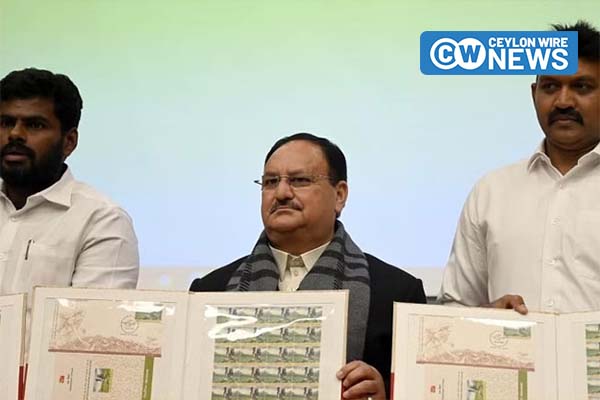In a strategic move to appeal to Tamil voters ahead of the 2024 Lok Sabha elections, Bharatiya Janata Party (BJP) National President JP Nadda unveiled a commemorative stamp on Saturday, marking 200 years of Indian-origin Tamils residing in Sri Lanka. The event, held at the BJP central office, witnessed Nadda acknowledging the historical significance of the occasion.
During his address, Nadda highlighted the challenges faced by the people from the Madras Presidency who were transported to erstwhile Ceylon by the British, emphasizing their enduring struggle for dignity and recognition. Reiterating the commitment of the Modi government and the BJP, Nadda stated that they are deeply dedicated to the welfare and prosperity of Indian-origin Tamils in Sri Lanka.
“We have tirelessly worked to provide them with housing, healthcare, and other basic necessities, ensuring their quality of life,” he affirmed. Nadda recalled Prime Minister Narendra Modi’s visits to Jaffna in Sri Lanka, where promises were made and fulfilled, including the construction of 14,000 pucca houses for Indian-origin Tamils.
Quoting historical references, Nadda explained that the British encouraged the migration of Tamils to Sri Lanka for economic activities, engaging them in various fields. He assured that the BJP-led government, under PM Narendra Modi’s leadership, is genuinely concerned about the welfare of Tamils in Sri Lanka, acknowledging their contributions to infrastructural development.
As a special guest at the function, Senthil Thondaman, the governor of Eastern Province (Sri Lanka), expressed gratitude for PM Modi’s support in rebuilding Sri Lanka during an economic crisis and for taking care of Indian-origin Tamils, constituting the third-largest ethnic group in Sri Lanka.
The commemorative stamp was released with the aim of recognizing the substantial contributions of Indian-origin Tamils to the plantation industry in Sri Lanka. The majority of these individuals reside in the Northern and Eastern provinces, predominantly speaking Tamil as their native language. Source: The New Indian Express









